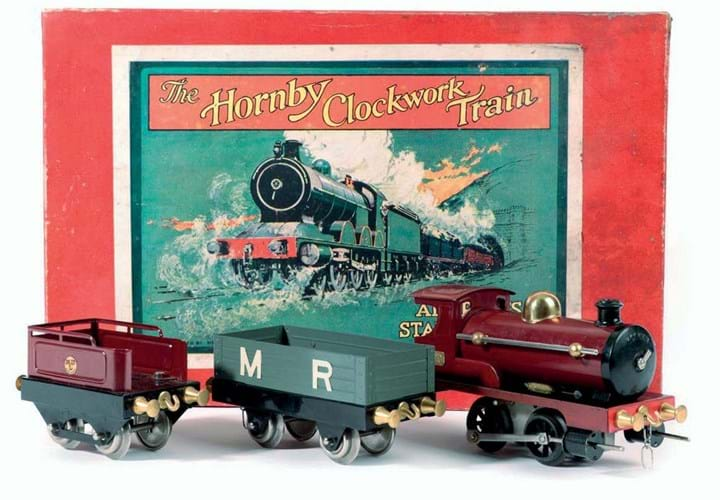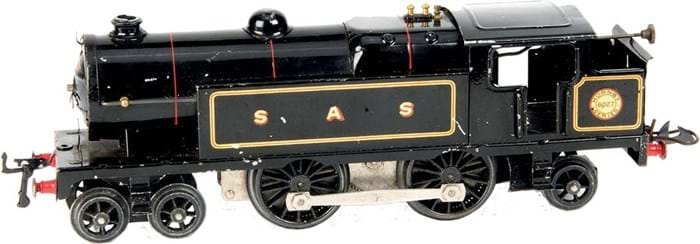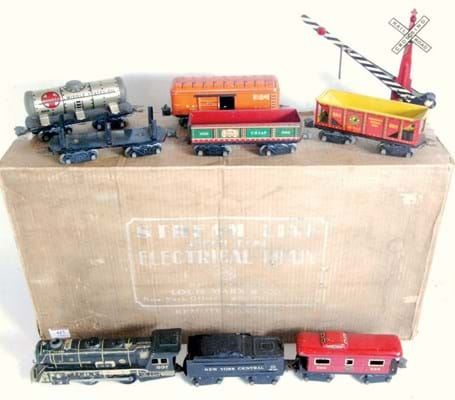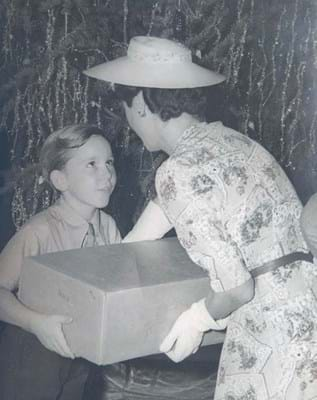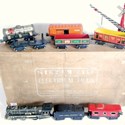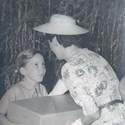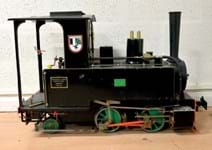A century ago, the Meccano Company released its first pre-constructed clockwork train set under a new brand name: Hornby.
In 1901, Frank Hornby, a clerk from Liverpool, had founded Meccano, selling construction kits that taught children the basic principles of mechanical engineering. One of the most popular projects was to make trains, and gradually Meccano began to produce specific train parts, such as chimneys and boilers, to make its models more realistic.
The 1920 train set was a breakthrough, with much more realistic and accurate parts, although it was still essentially a kit made with the typical Meccano nut and bolt construction. The box claimed that the train was built of standardised parts to allow for modification: it did, but only identical parts of different colours were interchangable.
Subsequent train sets released by Hornby switched to the ‘slot and tab’ method of construction employed by other makers of tin toys, and Hornby no longer sold their trains as ‘kits’.
A remarkably preserved example of one of these first train sets emerged at North Yorkshire auction house Tennants (20% buyer’s premium) on June 10, estimated at £400-600. The seller was a private client in the north who had brought it to a valuation day.
The maroon locomotive has M Ltd (Meccano Limited Liverpool) decals to the sides and Hornby stamped on the front. The wagon is marked MR (Midland Railway), one of the railway companies operating in the UK before the ‘Big Four’ (London North East Railway, London, Midland and Scottish, Great Western Railway and Southern Railway) were created in 1923.
Tennants specialist Kegan Harrison said: “It really was in fantastic, original condition. The clockwork key was still in its packet, and the original packing slip, which is dated 11-20, was still with the box. I have never seen an example like this.”
It sold for £2600 to a ‘major private collector’ from the south of England.
With most Hornby 0-gauge surprisingly very affordable, it is condition, date and rarity that make the difference to value.
A good example of how rarity can boost demand came at Special Auction Services (25% buyer’s premium) on June 30-July 1, during one of the Newbury firm’s extensive dedicated sales dubbed Glorious Trains. Estimated at £500-800, a No 2 Special E26 electric 4-4-2 tank locomotive sold for £1000 to a UK private collector.
The markings SAS to the left side and SAR to right on the lined black livery give the game away: this was a South African export model, featuring an early Hornby Series 6027 number roundel.
The saleroom’s specialist Hugo Marsh said: “It came from a classic hidden collection. We were called to a semi-detached house in Surrey for ‘a small train collection’ and in the end filled four vans. An old collection, largely complete by the 1970s, all wrapped carefully and much in superb condition. Plus quite a lot of soot. Many more will be offered in our Trains Galore sale in December.”
Milbro from Roy Chambers
Among the most eagerly contested lots in the SAS sale was a Milbro three-rail Great Central Railway 4-6-2 tank locomotive estimated at £400-600. A UK collector ended up bidding £5500.
While collectors will have heard of Hornby, the name Milbro is perhaps not so familiar. It was the trade name of Mills Bros Model Engineers, a Sheffield firm started in 1919 which produced high-quality 0-gauge models, track and many other accessories.
Marsh added: “It’s not by a special builder such as Beeson, but you only had to pick it up to realise that it was utterly gorgeous, beautifully detailed and painted in original GCR lined green and brown livery. Milbro, like Bond’s and the best Bassett-Lowke, only made pieces in tiny numbers at huge expense in today’s terms. This is a rare prototype and I’d never seen one before.”
The Milbro GCR loco came from the Roy Chambers collection, a well-known 0-gauge collector and enthusiast who died in 2018. He grew up in a house in the Leicester suburbs in the 1920s, developing an early interest as the Great Central mainline ran opposite the family home.
Later, with his son Julian, he began visiting toy fairs looking for items to buy and later sell. Julian said: “In the late 1970s we took our first table at a fair and he then went on to exhibit at fairs on a regular basis and soon became a familiar face at fairs and auctions all over the country. He was getting things ready for a fair right up to a few days before he died.”
Roy was well-known for his collection of Leeds, Milbro, Bond’s and other ‘non-mainstream’ items, and SAS created a special category in the auction for these where they have been “reasonably positively identified”. Marsh said: “There has never been an auction before with so much material of this type, to my knowledge. And online results overall were astonishing – £204,000 overall without premium.”
A gift from Wallis Simpson
At Lacy Scott & Knight (20% buyer’s premium) in Bury St Edmunds on June 27, a Louis Marx Stream Line electric train set sold for a mid-estimate £380. It had an intriguing royal connection.
In December 1941 this little-used set was given as a present to English schoolboy David Madden by the Duchess of Windsor, aka Wallis Simpson.
Madden had been relocated with his mother to the Bahamas during the war, where the Duke of Windsor was governor. Among the duties of the post was hosting a children’s Christmas party at Government House in Nassau.
The train set itself was typical of the Marx company’s intention to make affordable yet good-quality toys. This made them incredibly popular during the depression-hit 1930s and into the ‘40s and ‘50s. The boxed set, with instructions, was sold with the photograph of David receiving the gift from Wallis Simpson, his invitation to the party and a letter from Bishop Spence Burton to Mrs Madden thanking her for her help at a dance.
The set was consigned by a local collector and the saleroom reported it sold to a major London-based private collector bidding over the phone.


